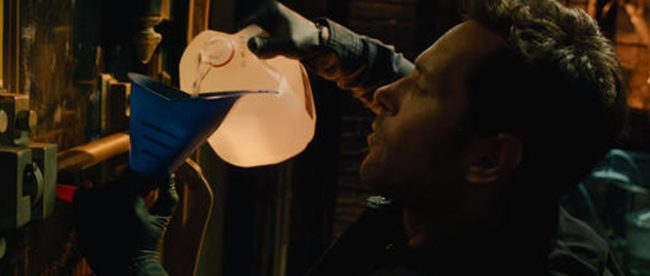The Weekender, February 8, 2019

1) “Meet the Safecracker of Last Resort” (The Atlantic, 15 minutes, December 2018). The subhead: “Charlie Santore sees Los Angeles from the inside, by breaking into safes whose owners can no longer unlock them. ” (And thanks to reader Jenna L. for sharing!)
As Santore completes one job, another will arise in the form of frantic phone calls—a jewelry business locked out of its vault, a suburban father whose gun safe no longer operates, an investor flipping houses who discovers a locked safe in the floor of her newest conquest. He even keeps a bulletproof vest in his car trunk for when he’s called out to open an ATM, in case he gets held up for the cash inside.
In 2017, Santore was called to a house near the 405 freeway that was being renovated by a married couple. The safe had been abandoned by its previous owner, and the couple had been living with it for several years until they finally hired someone to crack it open. Why not? According to Santore, it was the craziest thing he’d ever seen, filled with Bulgari necklaces and Cartier jewels, easily six figures’ worth. Sometimes with safes, people get lucky. Usually, Santore said, they do not.
One morning toward the end of summer, Santore was called out to the house of a client suffering from what his son described as early-stage dementia. The man’s house stood on a leafy cul-de-sac in Century City. Santore was able to manipulate the safe open with nothing but his bare hands and intense concentration, but it took him nearly thirty minutes.
About twenty minutes in, the homeowner’s son stepped outside to take a phone call. The owner, apparently having forgotten that he hired a safecracker, stepped around the corner to see us squatting next to each other in the closet, fiddling with his safe. Startled, the man said an awkward hello; after we reminded him who we were, he reintroduced himself. In another scenario, I realized, that moment could have gone very badly.
2) “This Is What Happens When You Try to Sue Your Boss” (Bloomberg, 11 minutes, January 2019). A lot of employers are forcing employees into arbitration. Here’s what that looks like, and why it’s a complicated mess (especially if you’re the employee).
3) The Now I Know Week in Review:
Monday: Why You Couldn’t Watch the First Super Bowl — without a time macine, hat is.
Tuesday: The Fake 80s Song That Became an Accidental Hit — Now it’s going to be stuck iny my head — again.
Wednesday: Shooting the Moon — the US plan to nuke the moon as a show of force.
Thursday: When Doing the Math Meant Breaking the Law — Doing math without a license? That sounds … perfectly fine. Here’s when it wasn’t.
WeekenderAdUnits
4) How a Vermont social network became a model for online communities” (The Verge, 13 minutes, Janua 2019.) Thanks go to reader Shamama Z. for sharing this with me.
On August 29th, 2011, Tropical Storm Irene passed over Vermont, the first such storm to hit the state since 1938. Almost every river and stream in the state flooded. When the water receded, four people were dead and numerous towns faced a massive cleanup, with nearly $700 million dollars worth of damage across the state.
One of the affected towns was my hometown, Moretown. Nestled on the edge of the Green Mountains, it’s the classic definition of small town: no stoplight, a combined general store and gas station, a tiny library, and a single elementary school, all serving a population of just under 2,000. When Irene passed overhead, the floodwaters topped the banks of the Mad River, and flooded more than 60 private homes and public offices, including the post office, fire department, elementary school, and town offices. Moretown isn’t a place with significant emergency-response resources, but the residents did have their neighbors — and a new online message board called Front Porch Forum.
In the aftermath of Irene, the residents of Moretown used this online community to coordinate meals for those left without a home, request assistance with the cleanup, or offer help with preserving family pictures. The town government had never set up an official online presence, so it began using the forum, too, posting official updates and keeping everyone apprised of developments in the cleanup.
5) “The ugly — and, yes, slightly gross — truth of stadium bathrooms” (ESPN, 13 minutes, February 2019). The title is gross but the story is … okay, it’s also gross, but it’s really a good read.
Have a great weekend!
